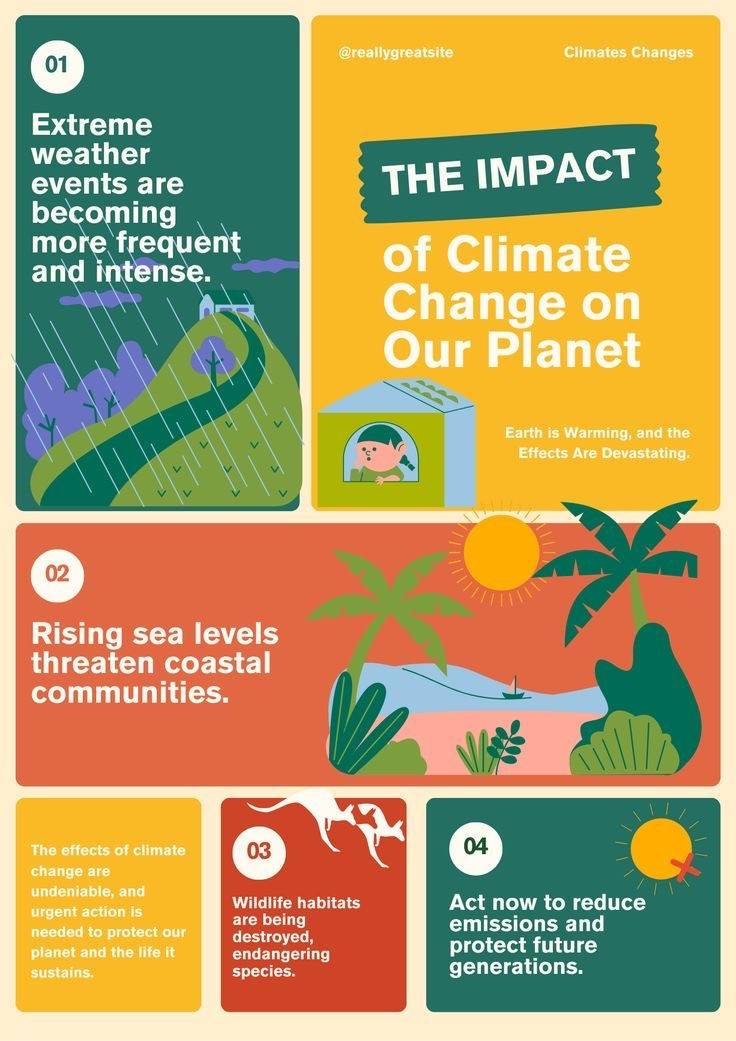 A Warming World: Our Urgent Climate Crisis
A Warming World: Our Urgent Climate Crisis
Climate change, a pressing global issue, is rapidly transforming our planet. The consequences of rising global temperatures are far-reaching, impacting ecosystems, economies, and societies worldwide. From extreme weather events to rising sea levels, the effects of climate change are becoming increasingly evident.
The Causes of Climate Change:
- Greenhouse Gas Emissions: The primary driver of climate change is the excessive emission of greenhouse gases, primarily carbon dioxide (CO2) and methane, into the atmosphere. These gases trap heat from the sun, leading to a warming planet.
- Deforestation: The clearing of forests for agriculture, logging, and other human activities releases significant amounts of CO2 into the atmosphere and reduces the planet's ability to absorb carbon.
- Fossil Fuel Combustion: Burning fossil fuels like coal, oil, and natural gas releases large quantities of greenhouse gases, contributing significantly to climate change.
The Impact of Climate Change:
- Extreme Weather Events: More frequent and intense heatwaves, droughts, floods, and storms are becoming commonplace.
- Rising Sea Levels: As glaciers and ice sheets melt, sea levels are rising, threatening coastal cities and islands.
- Ocean Acidification: Increased CO2 absorption by the oceans is leading to ocean acidification, harming marine ecosystems.
- Biodiversity Loss: Climate change is disrupting ecosystems and driving species extinction.
- Food and Water Scarcity: Changing weather patterns are affecting agricultural productivity and water availability.
Addressing Climate Change: Solutions and Strategies:
To mitigate the effects of climate change and build a sustainable future, we must adopt a multifaceted approach. Some key solutions include:
- Transition to Renewable Energy: Shifting from fossil fuels to renewable energy sources like solar, wind, and hydro power can significantly reduce greenhouse gas emissions.
- Energy Efficiency: Improving energy efficiency in homes, buildings, and industries can reduce energy consumption and lower carbon emissions.
- Electrification of Transportation: Promoting electric vehicles and public transportation can help reduce reliance on fossil fuels.
- Sustainable Agriculture: Adopting sustainable farming practices can reduce greenhouse gas emissions from agriculture and enhance food security.
- Reforestation and Afforestation: Planting trees can help absorb CO2 from the atmosphere and restore ecosystems.
- International Cooperation: Collaborative efforts between countries are essential to address global challenges like climate change.
- Individual Actions: Every individual can contribute to mitigating climate change by adopting sustainable lifestyle choices, such as reducing energy consumption, conserving water, and reducing waste.
While the challenges posed by climate change are significant, there is hope. By taking immediate and decisive action, we can limit the worst effects of climate change and create a more sustainable future for generations to come. It's time to embrace sustainable practices, invest in clean technologies, and work together to protect our planet.



